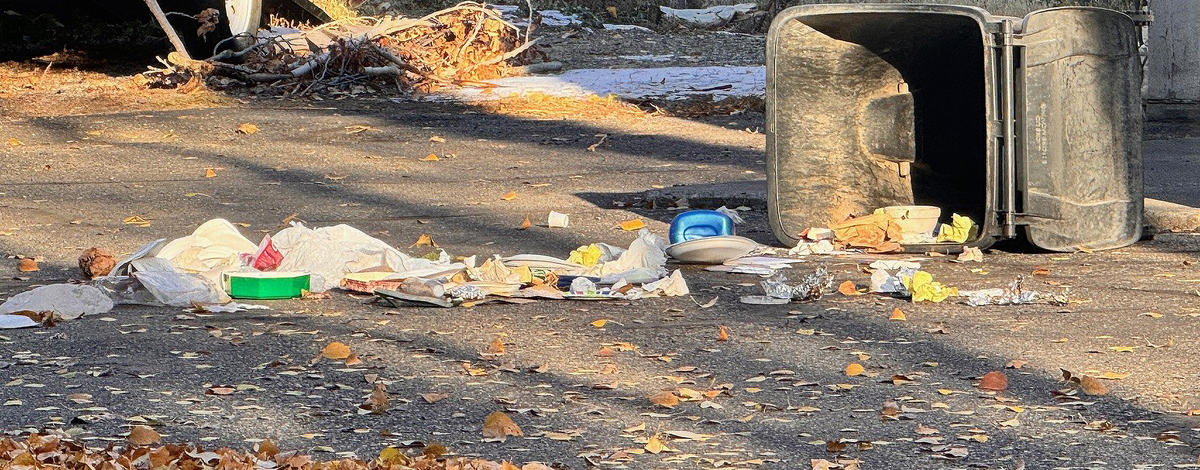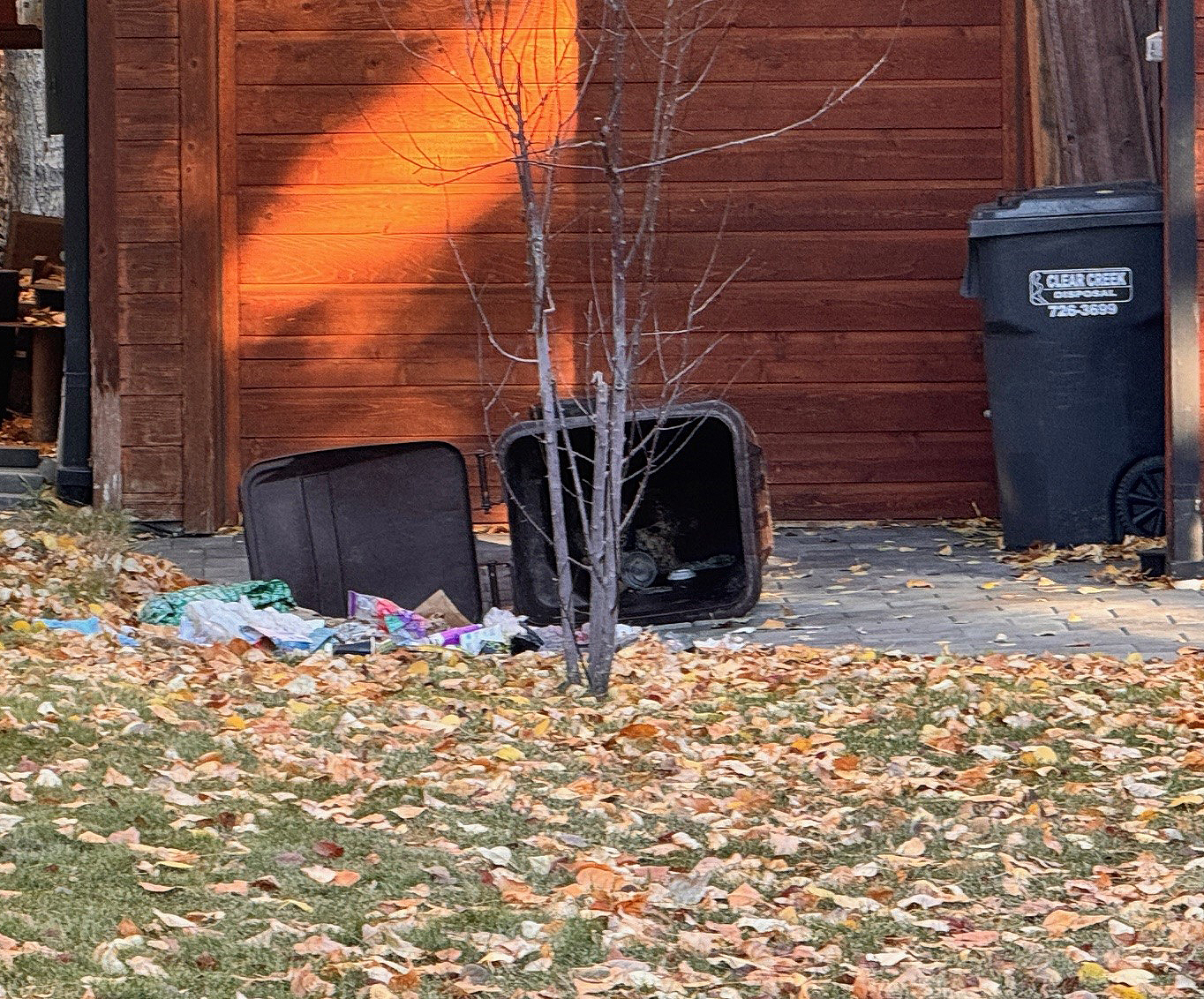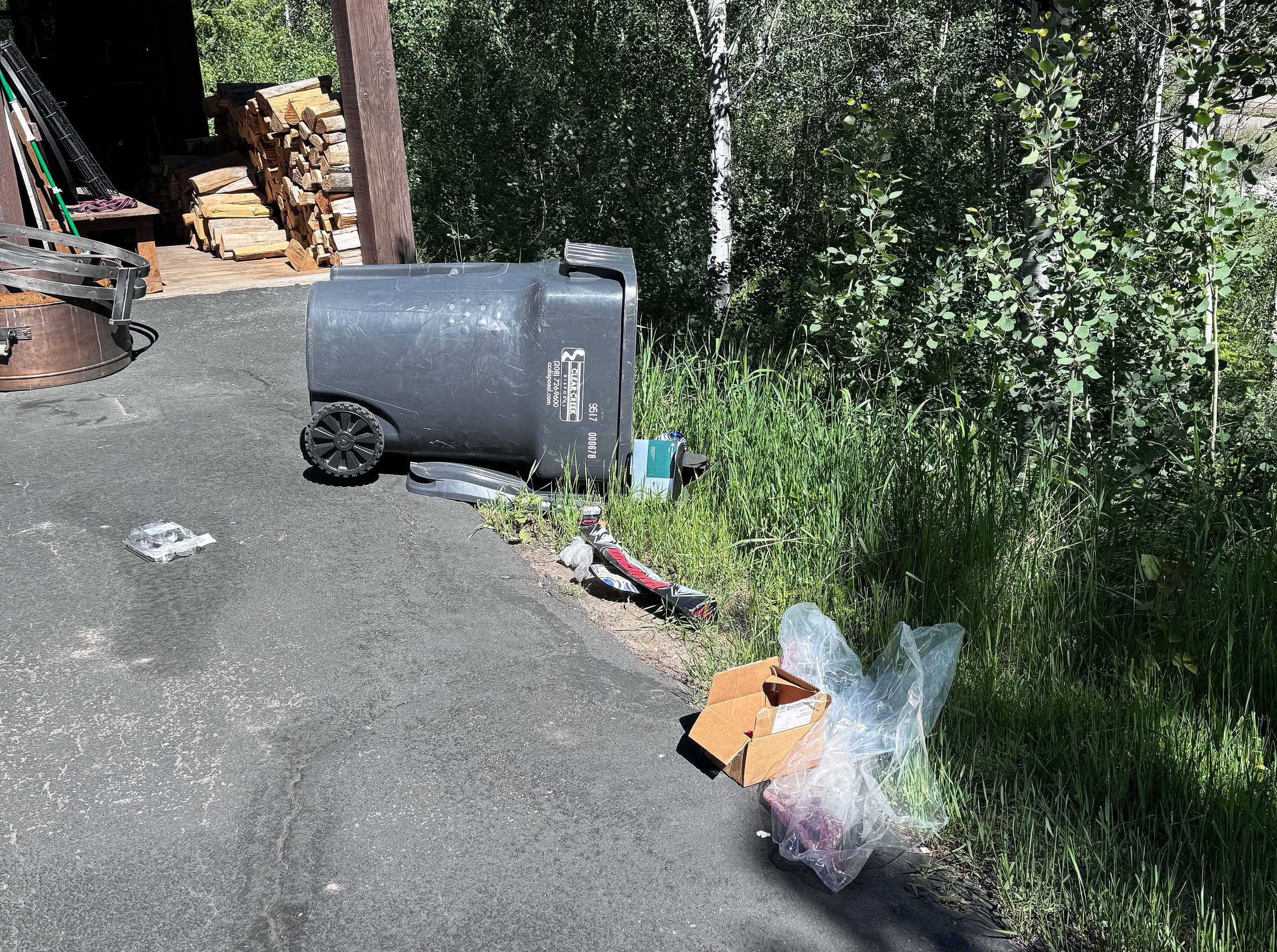After repeated incidents of accessing unsecured residential garbage, a yearling black bear was euthanized north of Hailey on Thursday, November 14, 2024. The young male that weighed approximately 100 pounds had twice broken into a garage to find food and there were signs of the bear attempting to get into a house. Since the bear was showing increasingly aggressive behavior, the decision was made to trap and euthanize the bear to protect public safety.
Over the last several months Fish and Game has been receiving an increasing number of reports of black bears getting into garbage and other attractants in subdivisions and neighborhoods throughout the Wood River Valley. Since early August, well over 100 reports have been received by Fish and Game, with the common theme of a bear getting into residential garbage or other food sources.



